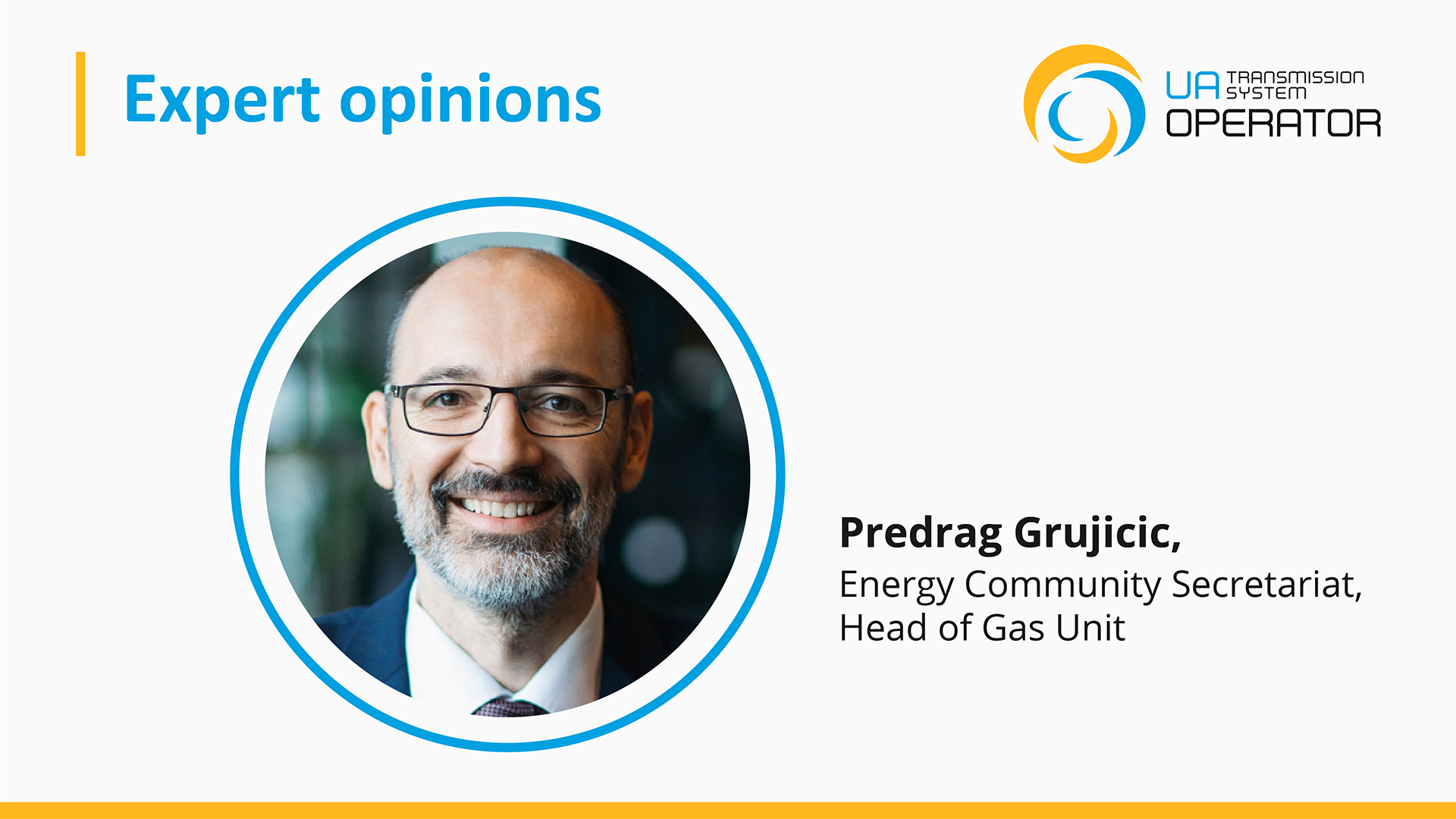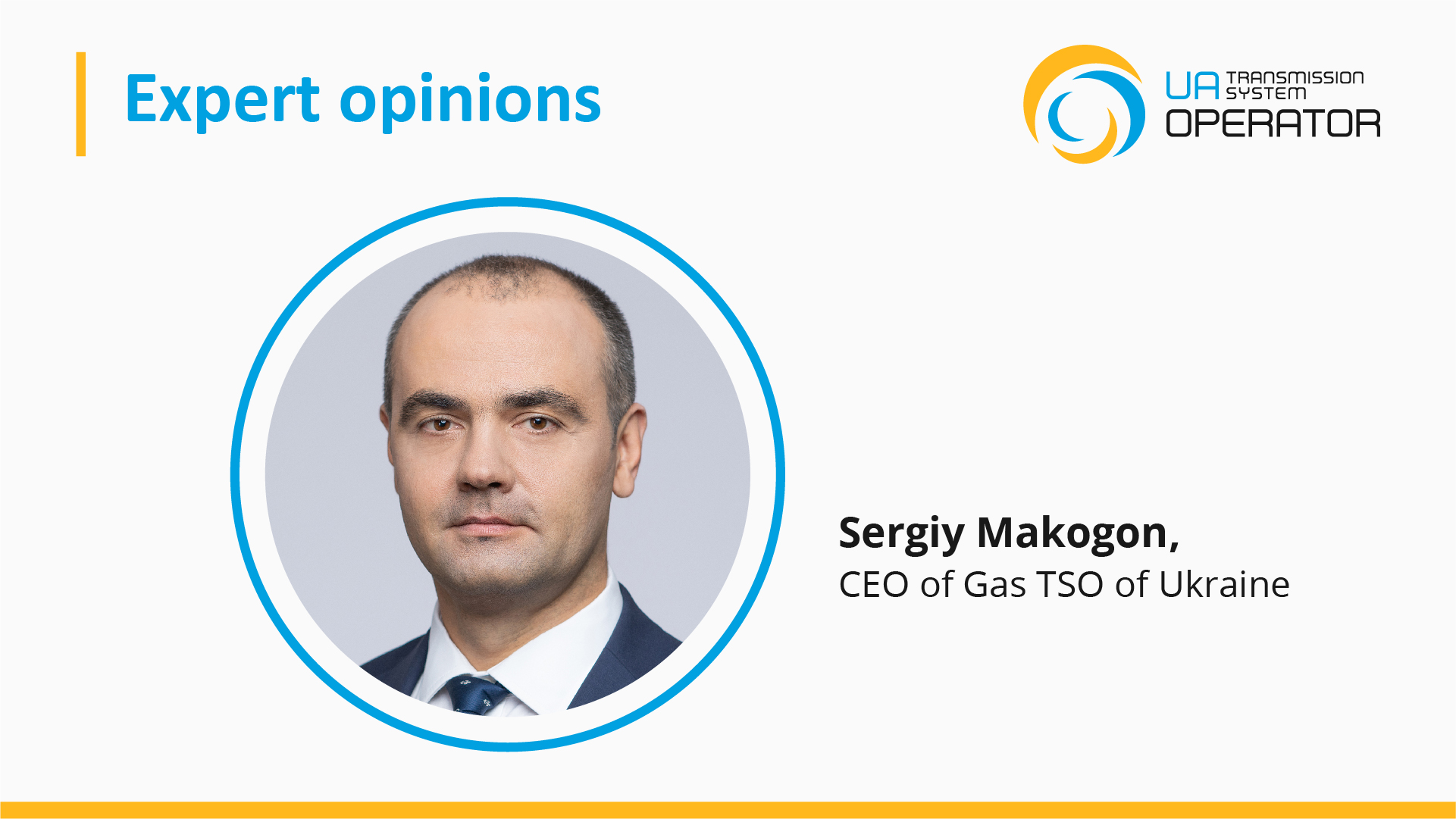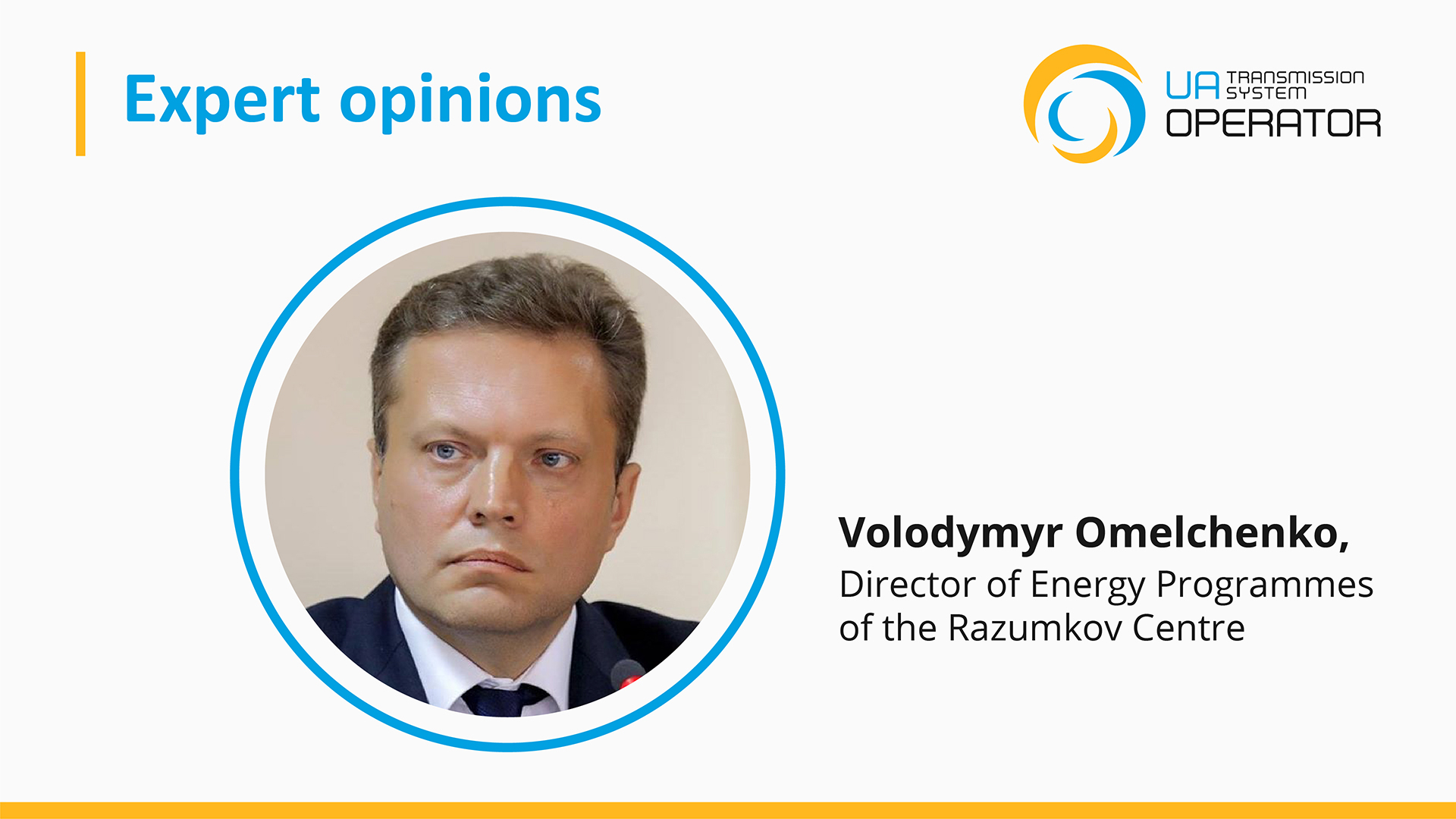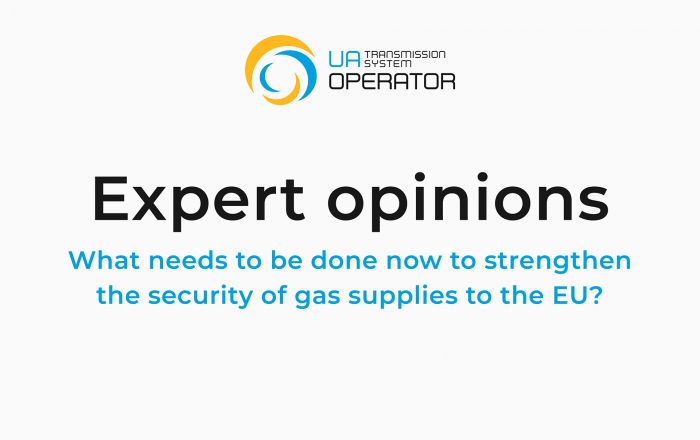Gas TSO of Ukraine continues the project «Expert opinions», called to reveal comprehensively the topical issues of the gas market. We are interviewing Ukrainian and foreign experts about the current situation and prospects Ukraine and Europe, given the complete reshaping of the gas supply map in connection with the aggression of russia against Ukraine. This issue focuses on the security of gas supplies to the EU.
We asked the experts to reflect on urgent steps that would help strengthen the security of gas supply and ensure the necessary volumes of «blue fuel». Experts also spoke about the risks and «bottlenecks» of European gas infrastructure and how this issue can be addressed in the near future.
Predrag Grujicic, Head of Gas unit at the Energy Community Secretariat, believes that preparation of the gas infrastructure is the most important step to ensure Europe’s energy security. And politicians already have an understanding that it is no longer possible to think about the security of just one country, today it is about the security of the entire European region.

«I appreciate the work of many institutions, in particular ENTSOG, which are providing realistic risk assessments of the readiness of gas infrastructure to comply with changing gas flows and potential disruptions of supply from various sources. It is very difficult to prepare the European grid, created decades ago, for a certain gas transportation regime, or to change it dramatically in some places. Problematic bottlenecks exist, especially in Central and Southeastern Europe, but they can be eliminated, provided that the issue is approached in a coordinated and transparent manner. Projects, launched several years ago, are now being quickly finalized. Several new ones should be ready in an impressively short period of time», – said Predrag Grujicic.
Sergiy Makogon, CEO of Gas TSO Ukraine, believes that several steps need to be taken to enhance the opportunities of the EU countries and increase security of supply:
- make final investment decisions in 2022 on critical measures to address European gas flow bottlenecks, including the France-Spain interconnector and routes to Germany;
- expand existing pipeline flows to Europe, including Norway, Algeria, Libya, Azerbaijan and the Greater Caspian region;
- install floating storage regasification units to provide additional LNG supplies;
- impose restrictions on russian LNG.

«But the first step should be limiting the utilization of the Nord Stream-1 pipeline. – Sergiy Makogon is convinced. – The operation of this bypass gas pipeline not only threatens Ukraine’s military and energy security, but also poses uncertainty on supplies to Europe. After all, Gazprom has repeatedly violated its own obligations and blackmailed the EU. By now, russia has already significantly reduced its use of the Ukrainian GTS. Physical transit is only 40 million per day out of 109 booked (36%). Gazprom is violating its own obligation to deliver 40 billion cubic meters of gas per year to the EU through Ukraine. In six months, the transit will not exceed 13-14 billion cubic meters, meaning a shortfall of 6-7 billion cubic meters to the EU over the first half of the year».
At the same time, increasing the security of gas supply today is complicated by three dilemmas currently facing the industry, said Aura Sabadus, senior journalist with the international energy and petrochemicals news and data provider, ICIS. First, restrictions on signing long-term contracts with alternative producers run counter to the EU’s green transition goals. Second, the EU is trying to regulate prices to protect consumers from steep energy bills, fully realizing that only free functional markets can send the right price signals to bring in more supplies. Third, the morality of cutting ties with Russia in response to the war in Ukraine collides with the pragmatism of maintaining them for the sake of low prices. However, there are solutions that can balance the situation in the gas market.

«Reducing demand and efficient use of resources is perhaps the most effective way to increase security of supply and reduce costs with virtually no risk, – says Aura Sabadus. – Next up is a fuel change. Postponing the expected phase-out of nuclear and even coal energy and accelerating investment in small modular nuclear reactors, wind and solar generation or renewable gases. Ukraine can also contribute to this goal by starting commercial electricity exports that could save the EU as much as 5 billion cubic meters in Russian gas imports used for electricity generation. For those who are not convinced by the idea of shale gas, it is worth rethinking. Some countries, such as Romania, banned it under pressure from strong lobbies reportedly linked to Russia. It is time to review this option, as well as speed up conventional exploration and production of Europe’s domestic gas reserves. Finally, the use of alternative supply sources. To do this, public and private stakeholders must remove a number of obstacles. Also, national gas transmission operators and other responsible stakeholders will have to revise some of the rules that have led to the emergence of bottlenecks in the infrastructure. Removing such barriers will not require a lot of time and additional funds, only goodwill and transparency».
Volodymyr Omelchenko, Director of energy programs at the Razumkov Center recalls that the European Commission has adopted the RePowerEU Plan, which provides for the complete disposal of the EU from russian gas. Leading role in replacing 155 billion cubic meters of russian gas will be played by the dynamic development of renewable energy sources, hydrogen production, investments in energy conservation and energy efficiency, – the expert believes.

He supports the opinion of Aura Sabadus on the need to review EU plans to decommission coal generation and nuclear units, as well as increase investment in gas production in the North Sea.
«Due to the indicated internal potential, the EU is able to replace almost 80 billion cubic meters of russian gas until 2027. Another 75 billion cubic meters can be replaced by the diversification of supplies from the US, Qatar, Azerbaijan and North Africa. To create opportunities for receiving liquefied natural gas, Germany plans to build four LNG terminals with a total capacity of 58 billion cubic meters/year, which corresponds to the level of consumption in Germany in recent years. The OPAL and EUGAL pipelines should be used to supply gas from LNG terminals to the key Central European hub in Baumgarten. Also an important diversification project is the construction of a 700 km interconnector between Spain and Italy, which has an estimate of 2.5-3 billion dollars USA», – said Volodymyr Omelchenko.
The European rules from the REPowerEU package on ending dependence on russian gas by 2027 are useful, but there should be a plan for a complete phase-out in case russia exacerbates the energy crisis further before the next heating season, – said Wojciech Jakobik, energy expert, editor-in-chief of BiznesAlert.pl.

«Europe needs to maximize its LNG import capacity in the short term. This is where FSRUs (Floating Storage and Regasification Unit, – ed.) are useful as they can be retired when they are no longer needed. It is also necessary to develop transit opportunities for the re-export of natural gas outside of Russia to countries that do not have access to alternative sources. There should also be a plan for stable gas supplies to Ukraine in the event of a complete cessation of russian gas transit, on the one hand, and on the other hand – measures aimed at reducing risks such as sanctions against Nord Stream 1, which make Russia more dependent on Ukrainian route», – said the expert.
Wojciech Jakobik warns that Europe must be ready to completely stop consuming russian fuel. Because putin’s demands to pay for gas in rubles are not a guarantee of stable supplies: «he kremlin’s mood can change at any moment, especially when the «special operation» – in fact, the Russian war of conquest in Ukraine – goes badly».
